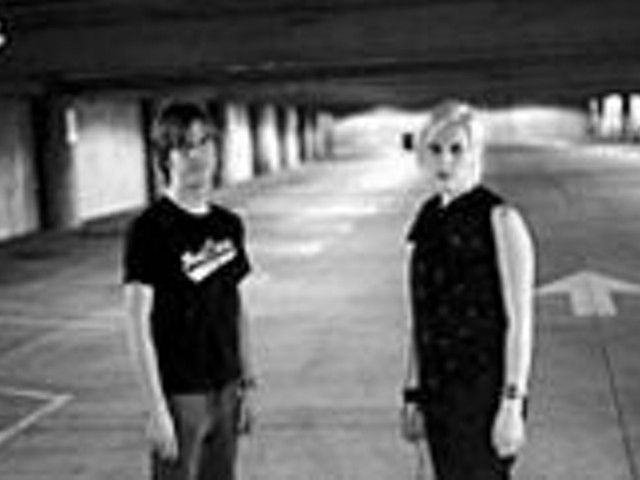Ordinarily a quartet comprising bassist Jimmy Tebeau, keyboardist Jack Kirkner, lead guitarist Shawn Guyot and drummer Dave Klein, just for Schwagstock the band picks up an extra two members (Darrel Lea on rhythm guitar and J. Curry on drums) to better re-create the experience of the six-piece Grateful Dead. Come rain or shine this weekend, more than 2,000 people will leave their dreary workweeks behind to camp at the base of Bagnell Dam and boogie to such folky numbers as "Mississippi Half-Step" and "Touch of Grey" and electric freak-jams like "Dark Star." "You truly leave all your troubles behind," says Kirkner. "It's shocking to think how much fun I have doing it."
"Every Schwag show is about getting some energy going -- not only what [audience members] hear, but what they see and, the biggest thing, what they feel," says Tebeau, who organizes the event.
Schwagstock got its start at a small campsite in Columbia, Mo., in 1997. "We had a Port-A-Potty and one spigot of water, but we did about 600 people," Tebeau recalls. He networked with like-minded jam-band aficionados through a mailing list he started in 1995 that now contains more than 4,600 names and launched the Schwag's Web site (www.theschwag.com) in 1997. Since then, Tebeau has stepped up the promotion, making the event bigger each year; Schwagstock 9 attracted a record 2,700 people last month. More important than numbers, however, is the prevailing sense of community -- "the exchange of energy between the band and the audience that's at the core of the whole thing for us and for people who come to see us," says Kirkner. "We rely on it in order to make the music what it is."
Clearly Schwagstock is a family affair for both the band and the audience. Tebeau, a personable fellow with dreadlocks extending to the middle of his back, has a smile and a handshake for everyone he meets, and no one's a stranger for long. Off-roading around the perimeter of the campsite in golf carts, the band members wave to fans, stopping along the way to chat or give them a lift to Shakedown Street, a walkway lined with vendors' booths where fans congregate. "We know a lot of the people that come to the shows. It's kind of a big campout of cool friends," Tebeau says. Even his parents help out by manning the entrance to the grounds, and, after the show, Tebeau always jams with his 17-year-old son, Chris, at the drum circle around the bonfire.
The Schwag evolved in 1992 from a jam band called the Kind that's played a regular Tuesday gig in St. Louis since 1991. "We threw the Schwag together as an excuse to jam on Monday nights," Tebeau confesses. He still plays with the Kind every Tuesday night at Z, the band's temporary home until Cicero's reopens. Although the band's lineup has changed over the years -- Tebeau is the only current member of the original Schwag -- their mission remains constant: to revel in "the interpretation of the shows and of the Dead and of the material," in Kirkner's words.
Before you deride them as Grateful Dead knockoffs, realize that the Schwag don't really cover Dead songs so much as improvise to them. They consider themselves musicians, not mimics, an improvisational outfit rather than a cover band. Tebeau, who's studied jazz theory and played in big bands and jazz combos, revels in the freedom of the Schwag's music: "We've been trying to bust out jazz tunes lately like Miles Davis." Drummer Klein had an 11-year love affair with classical trumpet before taking up the drums in 1993 and joining the band in 1997. "The background of everybody in the band comes through," says Kirkner, who joined in 1999 and plays a '60s-era Hammond B-3 organ. "I don't think the Dead would ever recommend that we stagnate for any reason."
One thing they all have in common, however, is a willingness to tour, tour, tour. The group averages about 200 shows a year in 17 states. "That's part of the fun of being in the band -- I've met so many beautiful folks out on the road," says Guyot. "We have family in every city."





